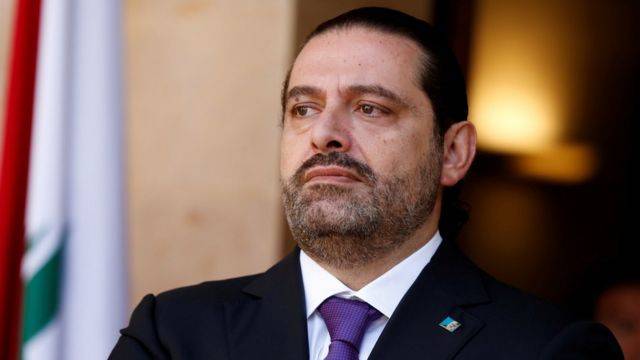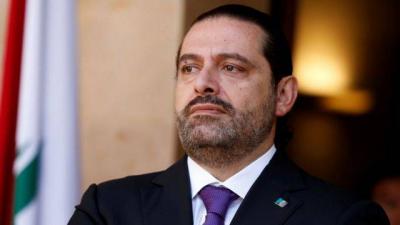The media office of President Saad Hariri issued a clarifying statement in response to an article published in the newspaper "Al-Akhbar" that relayed words from President Michel Aoun.
The statement said: "It is unfortunate and painful that the words attributed to His Excellency the President of the Republic appeared in 'Al-Akhbar' while the country faces a torrent of health, security, and political crises, and while the second capital, Tripoli, is under an organized attack that raises suspicion in many directions. The statement considered that the country is in a valley of suffering and crises, while the strong era is in a deep valley of indifference, denial, and slandering of others.
What adds to the sorrow is the lack of initiative from the Presidential Palace to deny and clarify these words, preventing the delegation of incorrect positions and narratives to His Excellency the President and the position of the presidency, which do not align with the status and national responsibilities of the presidency in these difficult times.
The statement emphasized the necessity of shedding light on some points mentioned in President Aoun's "article," in order to correct the facts and spare the Lebanese public from falling into the traps of toxic narratives:
- First: It is clear from the full context of the attributed words that the circles of Baabda Palace want to direct the governmental conflict towards sectarian paths, thus stripping the President of the Republic of the representation of all Lebanese in their various sects, confining this representation to his responsibility for Christian shares in the state, authority, and government. As stated in the article: "I will not waste what we have achieved over the past years by making the Christian team a real partner and not a product of others who impose their will upon it. Here lies the source of my constitutional powers and political responsibilities."
Perhaps Baabda circles know, but do not want to admit, that it is not Saad Hariri who disregards the rights of Christians and their role and status in the state and institutions; otherwise, General Michel Aoun would not be in the position of the presidency now. Saad Hariri is a product of a political school that transcended sects for decades and believes in coexistence in words and actions and constitutional texts.
Transferring political disputes to sectarian arenas is an unsuccessful and rejected attempt that will not pass, in order to organize an Islamic-Christian conflict, which some assume is the quickest muddy path to reinstate those they wish to resurrect and pave the way for Baabda for political inheritance.
- Second: His Excellency states in the article, "In one of my meetings with President Saad Hariri, he told me that he is the designated president and he is the one who forms the entire government. Of course, I did not allow this before, nor do I now, according to Article 53."
This statement is out of context and merely a delusion and a misunderstanding. What sane person can imagine the designated president clinging to an exclusive right in forming the government when he is the first to know that formation decrees are issued by agreement between the two presidents? The constitution is clear, and there is no need to use it for political calculations and shares. The Prime Minister conducts parliamentary consultations to form the government and signs the formation decrees by agreement with the President of the Republic... Anything else is an interpretation on demand.
- Third: The article also contains remarks from His Excellency: "It is natural for the President of the Republic to name Christian ministers due to the reluctance of Christian parties to participate (...) and he invented the third +1 which I demand. This is not true; I never demanded the third +1 (...) I asked for six ministers, that is five +1. This is the share of representation, not the share of obstruction."
When asked about the Shiite ministers, he claims he agreed with President Nabih Berri on the Ministry of Finance and with Hezbollah on its ministers. Ultimately, Walid Jumblatt names his minister, the Shiites their ministers, the Armenian Tachnag Party its minister, and Suleiman Frangieh likewise, while Hariri names the Sunni ministers and wants to be a partner in naming the Christian ministers. This cannot be accepted, as it disturbs the balance within the government.
His Excellency has overlooked that he entrusted me with a list of names, from which I selected a group of people recognized for their competence and expertise, most of whom were published in the article. He also overlooked that the solution adopted for the Ministry of Finance was consensual and was not opposed by Baabda Palace, evidenced by the fact that the paper he handed me noted the allocation of the Ministry of Finance to the Shiites. As for the obstructive third, as he knows, it pertains to a separate issue that leads us to a paper for distributing portfolios to sects and representatives of political forces, which constitutes a total breach of the principle of forming a government of specialists, automatically dragging the composition into the category of the obstructive third.
In conclusion, it is preferable to reaffirm that we demand a government of specialists while the palace seeks a government of party members. The hidden duality in this context is no longer concealed when His Excellency states in the article attributed to him: "We accommodated him with a government of 18 ministers. It seems he sees it only as he wants it. We will not talk from now on except about a government of 20 with the addition of a Druze and a Catholic minister."
"In short; there will be no government except with 18 ministers... Period." - Fourth: I no longer understand him. What he wants today is different from what he will request the next day." This statement, quoted from His Excellency, could well be adopted by the designated president, who barely leaves Baabda Palace after each meeting loaded with positive atmospheres until obstacles emerge from the rooms surrounding him.
President Hariri has gambled on opening a new page that would transfer the country to realms of reconciliation, achievement, and economic rescue. He embarked on the adventure of electing General Aoun as president, aware of the importance of laying the foundation for a new phase not governed by policies of denial and obstruction. However, the winds, unfortunately, blew contrary to good intentions and the will for coexistence and the required effort to stop the state from being drained in sectarian arenas."
The statement added: "The media office did not need everything said, as it adhered to silence in the name of President Hariri and acted on the basis that the country needs calm, not tension, and wisdom in approaching matters and protocols in considering relations between the presidencies, avoiding the temptation of escalation.
As for the conclusion of the article bearing His Excellency's signature, it is, unfortunately, also a poorly constructed fabrication of misleading information including that the designated president suggested, 'For the government to gain confidence in the Parliament, the investigatory judge should be disregarded. President Berri and Walid Jumblatt will not grant the government confidence under the investigatory judge.'
It seems that His Excellency forgot or overlooked that the Parliament approved the investigatory judge on December 20, and the Future Bloc, along with the blocs of President Berri and Minister Jumblatt, endorsed it. Perhaps His Excellency forgot or overlooked that he was the first to commend the Parliament's decision. In either case, to overlook is a disaster, and to forget is an even greater tragedy.
What kind of imagination fabricates all of this for the president to justify his obstruction policy before the Lebanese? And what kind of mind desires sectarian conflict by any means, sometimes with this faction and sometimes with that one?
The media office of Hariri concluded by saying: 'Their methods will not continue with us from now on, and we will not give them the chance to rejoice in any Islamic-Christian conflict. Each occasion has its appropriate context, should they wish.'"




